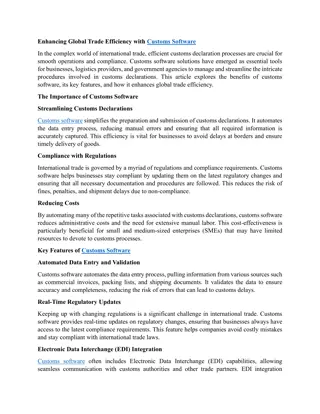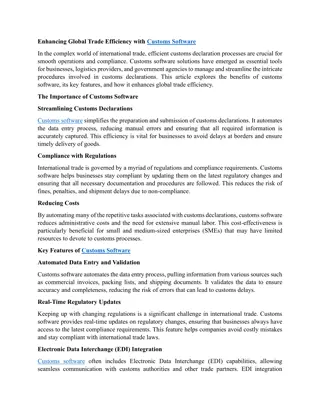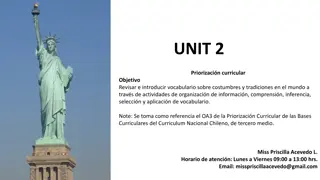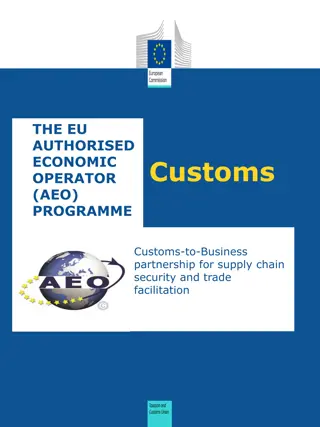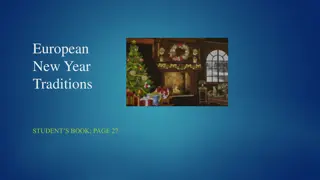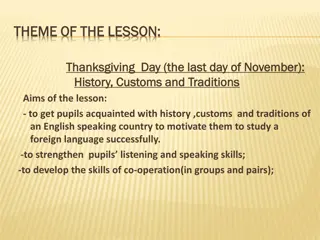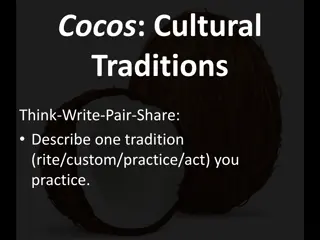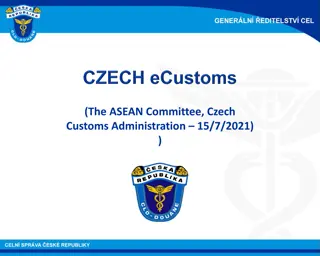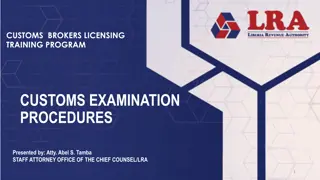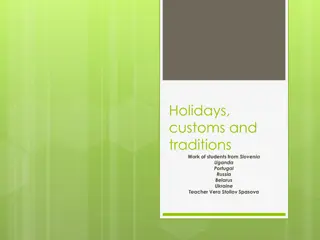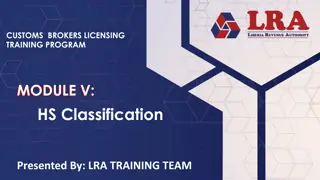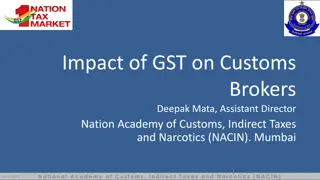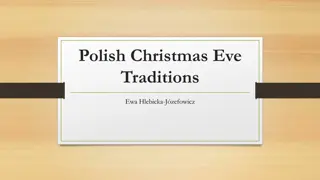Understanding Customs and Traditions: Lessons and Activities
Explore the significance of customs and traditions around the world with vocabulary exercises, sentence construction, grammar practice on modal verbs, and error identification. Enhance your understanding of cultural practices and etiquette through engaging activities.
Download Presentation

Please find below an Image/Link to download the presentation.
The content on the website is provided AS IS for your information and personal use only. It may not be sold, licensed, or shared on other websites without obtaining consent from the author. Download presentation by click this link. If you encounter any issues during the download, it is possible that the publisher has removed the file from their server.
E N D
Presentation Transcript
Period 33: Unit 4: Our customs and traditions Lesson 7: Looking back + project
VOCABULARY 1. Complete the sentences with the words from the box. Cutlery generations wrap worshipping host respect 1. We should . our customs and traditions. 2. A lot of countries in the world have the tradition of .. their ancestors. 3. You shouldn t . a gift in black or white paper. 4. In a lot of countries, the ... usually invites everybody to start eating. 5. In Viet Nam, the We mostly use is chopsticks. respect worshipping wrap host cutlery generations 6. For ., many family has visited this pagoda
2. Write sentences with the following expressions There s a tradition that according to tradition follow the tradition of break with tradition by have the custom of 1. 2 3. 4. 5. ..
Suggestions 1. There is a tradition in our countries of having fireworks on New year s Eve. 2. According to tradition, we have fireworks on New year s Eve. 3. Following the tradition of having fireworks on new year s Eve. 4. My neighborhood broke with tradition by not having five crackers on New year s Eve. 5. In the first day, people have the customs of going to the pagoda.
Grammar: Modal verbs *Have to S(I,you,we,they)+ have to + V(infinitive) S(he,she,it)+ has to +V(infinitive) *Should (+) S + should + V(infinitive) (-) S + shouldn t + V(infinitive)
4. Complete the sentences, using should or shouldnt and a verb from the box. Use break wait touch follow should wait 1. In Viet Nam you for the eldest person to sit before you sit down. 2. 2. In Viet Nam you ........ Only the first name to address people older than you. 3. 3. You ...... your promise to the children. 4. 4. If you are Vietnamese, you your customs and traditions. 5. 5. You ..... another person s head because it s disrespectful. shouldn t use shouldn t break should follow shouldn t touch
5. Underline one mistake in each of the following sentences. Correct it. 1. When you visit a temple in Thailand, you has to follow some important customs. 2. People should wear short shorts and tank tops. This is disrespectful. 3. People can wear sandals, but these have to has a strap around the back. 4. People should to lower their voice inside the temple. 5. Women have a voice touching monks.
5. Underline one mistake in each of the following sentences. Correct it. 1. When you visit a temple in Thailand, you has to follow some important customs. 2. People should wear short shorts and tank tops. This is disrespectful. 3. People can wear sandals, but these have to has a strap around the back. 4. People should to lower their voice inside the temple. -> have to -> shouldn t ->have to have -> should ->have to avoid 1. 5. Women have avoid touching monks.
Communication 6. Game: WHAT SHOULD I DO? In small groups, take turn to choose one of these scenarios for each other. Once everyone has had a turn at answering, vote for. the person who gave the best advice. I ve been invited to dinner with a British family. I m going to Japan to stay with my Japanese friend I m going to visit a pagoda in Viet Nam. I m going to visit a temple in Thailand. I want to join in Tet celebrations.
Project Customs and traditions: How they have changed
Homework - Do again all exercises - Do exercise : E.writing in page 35 in workbook - Prepare unit 5: getting started



